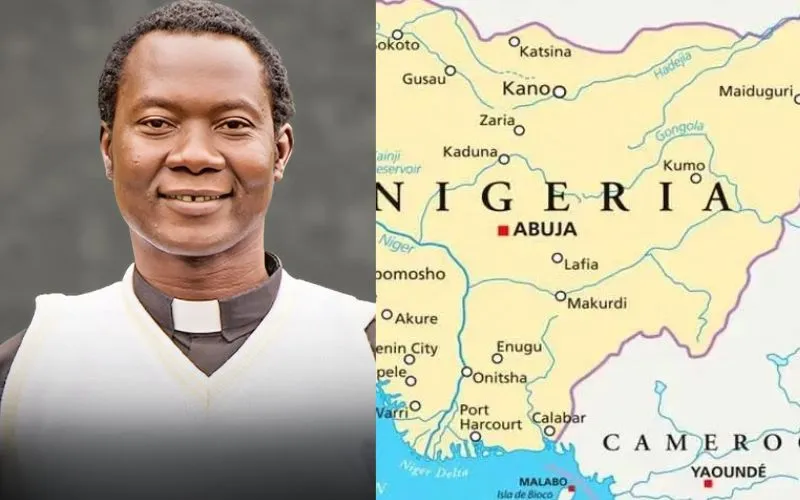However, there has been no further direct communication from the abductors, and it remains unclear whether any ransom has been demanded.
“I am not aware of any negotiations or demands. If there are, they are not in the public domain,” the Nigerian Catholic Priest said.
The incident, he added, was not necessarily a targeted attack against Fr. Afina.
“He was likely a victim of circumstance. That route has witnessed repeated attacks recently. I doubt there was a tip-off; they were probably just at the wrong place at the wrong time,” Fr. Nnaemeka said.
The third staff member, identified as Thomas Patrick, managed to escape to safety and has received health and psychological support.
(Story continues below)
According to Fr. Bature, “He made it to Maiduguri, where we immediately provided him shelter and care. When I met him the next morning, he was visibly traumatized, experiencing flashbacks, nightmares, and severe restlessness. We began immediate psychological support.”
“I also had to care for other staff affected by the incident, especially those who were involved in organizing the workshop that the convoy had been traveling to attend; one of them went into shock and had to be stabilized,” he said.
To ensure Patrick's full recovery, the Diocese arranged for his relocation to Yola en route Abuja, where he could reconnect with his family and continue his healing away from the traumatic environment.
Before the flight, he was taken to a safe house and later visited by Fr. Bature and close family members.
“He needed to dissolve that shock and fear, we provided him a place where he could rest without too much contact with others. Eventually, he was able to speak with his wife and reconnect with his uncle. That human connection helped in grounding him.” Fr. Bature explained.
The Diocese also arranged for a medical check-up to ensure Patrick's physical well-being.
“After such trauma, we always recommend a full medical evaluation to assess the individual’s vitals and ensure they are functioning well. We are following up with him, and depending on his recovery, we will determine whether to proceed with longer-term trauma care or allow him to return to work gradually,” the Catholic Priest said.
Despite the risks in the Nigerian Episcopal See, Fr. Bature said the Clergy and staff remain committed to their mission.
“We do not allow fear to paralyze us. We are mindful, cautious, but determined to continue serving,” he told ACI Africa.
Fr. Bature urged the President Bola Ahmed Tinubu-led government to take action against insecurity, saying, “The government has made some gains, but it must not rest. These insurgents appear to have studied the terrain again and are reasserting themselves in key areas. We need sustained military presence, intelligence sharing, and community policing.”
“We turn to God to heal our land. We ask for the safe return of our brother, Fr. Alphonsus. We pray for peace, not just for the Church, but for the nation as a whole,” he implored.
Abah Anthony John is a Nigerian Catholic journalist with passion for Church communication and media apostolate. He holds a bachelor’s degree in mass communication from Benue State University, Makurdi in Benue State Nigeria. He has a background in print, electronic and multi-media production.








